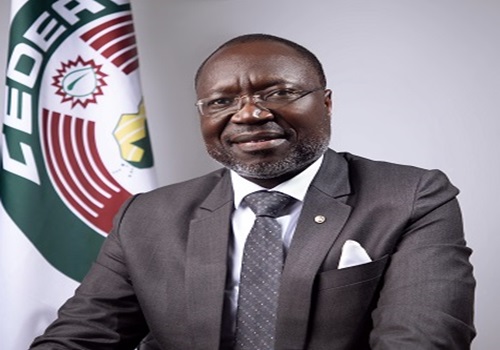The Economic Community of West African States has finalised the framework for a $75m Renewable Energy and Energy Efficiency Facility.
The announcement was made by the President of the ECOWAS, Dr. Omar Touray, during the 93rd Ordinary Session of the ECOWAS Council of Ministers in Abuja, on Thursday.
According to Touray, the facility aims to provide grants, loans, and guarantees through competitive calls for proposals, focusing on clean energy solutions across the region.
“A Framework Document for the Establishment of an ECOWAS Renewable Energy and Energy Efficiency Facility has been finalised by the Ministers.
“This is a new blended finance facility with an initial amount of USD75m, whose objective is to provide grants, loans and guarantees through regular demand-driven competitive calls for proposals providing clean energy solutions for the ECOWAS region,” the president said.
Addressing food security, he highlighted the progress of the “Rice Offensive” project, which aims to achieve regional self-sufficiency in rice production by 2035.
This initiative targets the production of 33 million tonnes of milled rice and requires $15–$19 billion in investments to improve storage, milling, and mechanisation.
“Towards regional self sufficiency in rice production, the “Rice Offensive” project launched by the Commission in 2014, under the ECOWAS Agricultural Policy has now reached a second cycle with the development of a Second Regional Action Plan (2025-2035) to replace the 2020-2025 plan, which is expiring next year.
“To attain regional self-sufficiency in rice, it would require the local production of 33 million tonnes of milled rice to meet a planned consumption target by 2035.
“This will also require a financial investment of US15 to $19 billion dollars of capital expenditures towards improving storage facilities, milling initiatives, and enhancing mechanisation in paddy production,” he noted.
The Nigeria-Morocco Gas Pipeline project also took center stage, with Touray noting its importance for regional integration.
The 6,800 km pipeline, including 5,100 km offshore, is expected to transport 30 billion cubic feet of natural gas annually, connecting Nigeria to Morocco and extending to ECOWAS member states, Mauritania, and Europe.
He noted, “This regional integrative project aims to build a gas pipeline linking Nigeria to Morocco, feeding ECOWAS member states and Mauritania with future extension to Europe.
“It is an infrastructure of 6,800 km long, including 5,100 km offshore, with a transport capacity of 30 billion cubic feet of natural gas per year.”
Touray also emphasised ongoing progress in regional integration projects. These include the phased implementation of affordable roaming tariffs, now live in six member states, and a proposed strategy to harmonize aviation charges, with plans to reduce passenger and security fees by 25 per cent.
Additionally, efforts to manage shared water resources and develop infrastructure in the water sector have been revived, aiming to reduce poverty and protect the environment.
However, challenges persist. Touray lamented that only 40 per cent of the Community Levy approved for 2024 had been received by October, hindering the implementation of ECOWAS programmes.
He called on member states to fulfill their commitments and support regional private sector actors in driving economic growth.
Security concerns, including terrorism, violent extremism, and organised crime, remain a significant focus.
Touray reiterated ECOWAS’s commitment to addressing these challenges and expressed hope that Mali, Burkina Faso, and Niger would reconsider their withdrawal from the organisation.
The president concluded by emphasising the importance of unity and collaboration in achieving ECOWAS’s objectives, underscoring that the region’s strength lies in its collective efforts.
